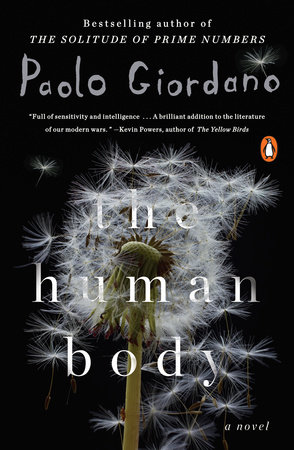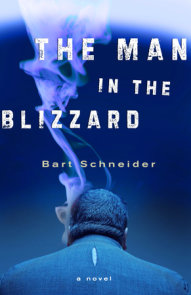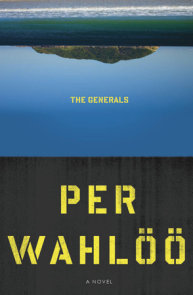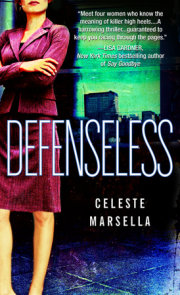READERS GUIDE
Introduction
Set against the backdrop of war, The Human Body is a novel about what happens in the innumerable gaps in action, where the story ends but life mercilessly continues. It is a moving and nuanced exploration of the toll of war. Deft and composed in his writing, Paolo Giordano weaves together a cast of characters like no other—beautiful in their imperfections and human in their desires.The Human Body centers on a platoon of Italian soldiers stationed in a forward operating base (FOB) in the Gulistan district of Afghanistan. Giordano takes the tedium of war and makes it both fascinating and darkly comical. His expertly drawn characters include Lieutenant Egitto, a medical officer escaping his complicated and lonely home life; Internet-girlfriend-obsessed First Corporal Major Torsu; and the disciplined Giulia Zampieri, negotiating a male-dominated world.
Giordano provides a glimpse of their lives at home, and what they will ultimately leave behind. The novel begins on the weekend before deployment, when we see the virginal Corporal Major Ietri, who spends his final night sharing a hotel bed with his doting mother. We see Marshal René alone, until beckoned by one of his clients as she reveals shocking news about their future. We see wives and girlfriends plan elaborate dinners and evenings out, distractions, as each soldier approaches the anxiety of leaving home.
Once on the base, life is monotonous and routine as the group attempts to make sense of their assignments and the lives they’ve left behind. For some time the most action these inexperienced soldiers see is the fallout from a basewide stomach virus spread by contaminated meat. Otherwise, the base tents are often filled with laughter or the thick and tangible longing they all share. But when a much-debated mission goes tragically awry, all their fates change and the soldiers return home with a permanently altered view of the world. With a careful and emotionally intelligent hand, Giordano demonstrates that the disaster of the mission is somehow auxiliary to the devastation rendered upon these soldiers’ hearts.
In certain ways, The Human Body is a contemplation of the character Egitto’s unanswerable questions: Why do wars break out? How does one become a soldier? What is a family?
Questions and Topics for Discussion
1. What might have motivated Lieutenant Egitto to request prolonged active duty? Especially considering how much his sister, Marianna, was expecting his return home?
2. When Egitto first reports to FOB Ice after the stomach virus outbreak and sees that Torsu is in particularly critical condition, he observes the care with which the soldiers have treated him. He recalls preferring to call a nurse instead of taking action on his own when his own father was sick, and asks himself: What kind of doctor feels disgust for a man who’s suffering? What child refuses to care for his father’s body? (p. 69). Do you have answers to these questions? Is Egitto, in the end, this type of man?
3. Early on at the FOB, Marshal Réne is preoccupied with how to ask Rosanna to terminate her pregnancy. By the end of his tour in Afghanistan, he feels differently. Why do you think he changed his mind?
4. On the battlefield, Ietri considers that it is necessary for him to stay alive, not only for himself, but to spare his mother another devastating loss. What might have been a consequence of her overbearing parenting in Ietri?
5. There is a passage at the beginning of the chapter “Death Round,” just before the troops embark on mission Mama Bear, which reads: “The Military does not distinguish between body and soul; it provides for and commands both.” Do you find this to be true in the book or in real life?
6. On the battlefield, Zampieri goads Cederna by suggesting that Ietri is no “verginella” after all, and kisses him publicly on the face. Was this an act of kindness for her crestfallen friend or was this the kiss that sealed Ietri’s fate?
7. In the ambulance, “Cederna wipes Ietri’s face clean with water from the canteen and speaks softly in his ear (p. 232), which Egitto thought was a waste of time, but hadn’t the heart to object to.” Do you think Cederna truly cared for Ietri? Or is he really a wolf, as he describes himself? Is it possible for him to be both?
8. Is Egitto justified in his skepticism of Irene upon her arrival? What were your impressions of her visit and her intentions, official and unofficial?
9. Is it guilt or concern that brings Marshal Réne to park in front of Camporesi’s widow’s home night after night? What do you make of their eventual union?
10. Ultimately, Egitto takes full responsibility in the trial for approving Turso for combat when he was not physically ready. Why does he do this when he could have fought the accusation?
11. In his description of the first time he smoked with Abib at the FOB, Di Salvo says that he realized the statue he was looking upon was death, but “it wasn’t death like you imagine it. It was like . . . indifferent. It couldn’t care less about me” (p. 45). Was this a sign of things to come for the men? For Di Salvo?






















